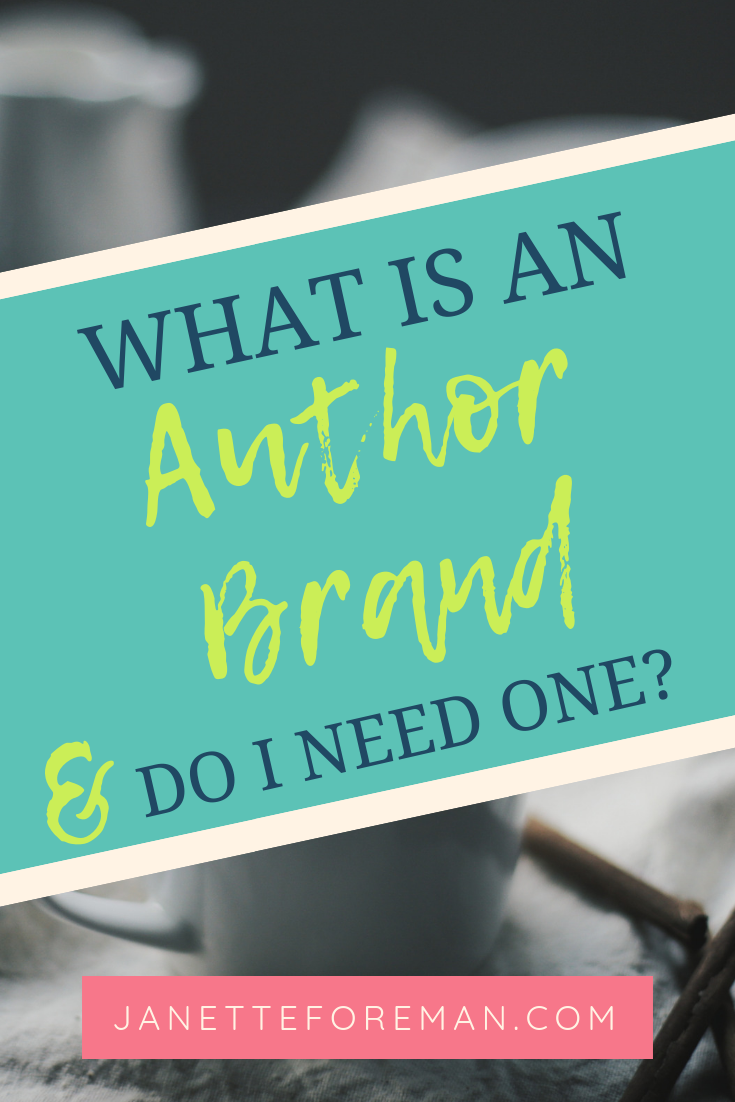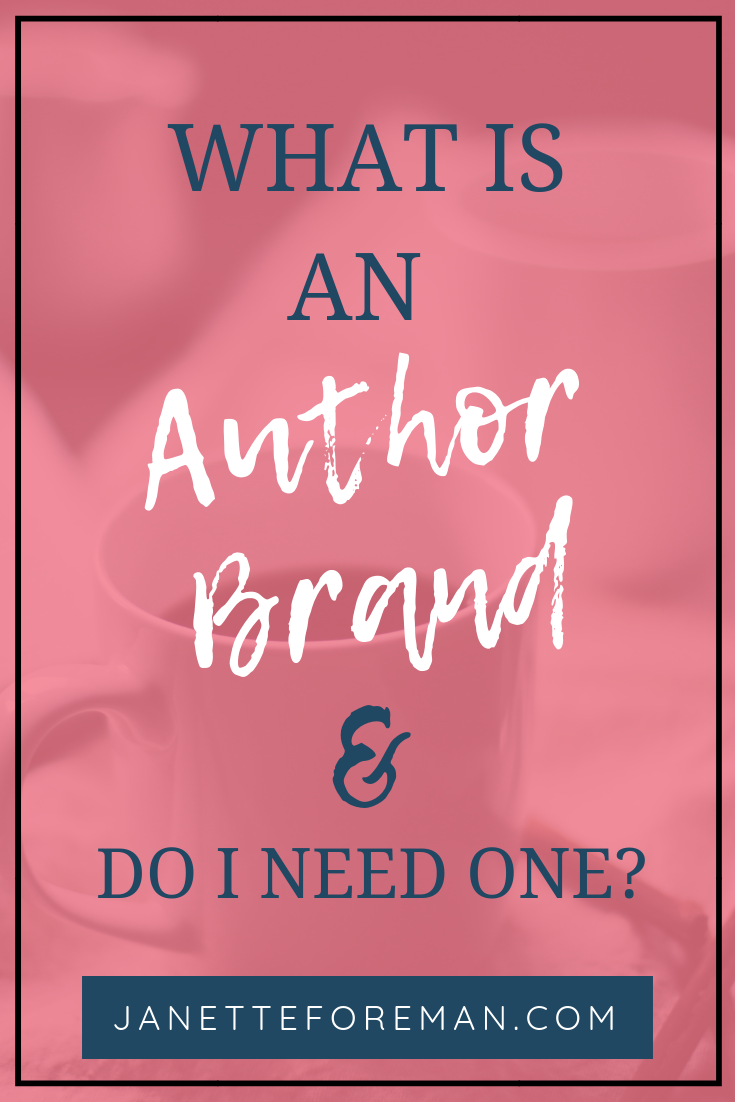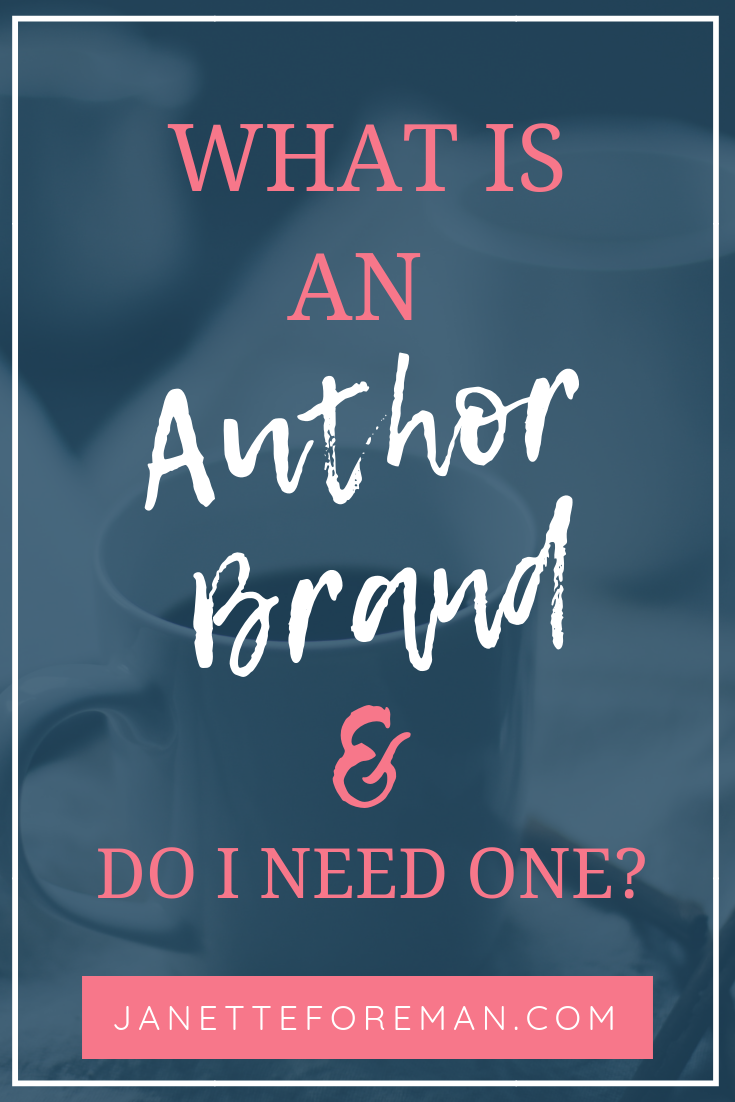This phrase, “Author Brand” has been thrown around a lot lately, and everyone is making the case that you need one. But what is an Author Brand, really? Or even what is “branding,” in general? And is there really a reason to spend time designing one for yourself? (**Note: It’s more than just a pretty website! It takes time to build a brand.)
Well, I am definitely in the camp that strongly supports branding yourself when you become a writer. But they are complex creatures, those Author Brands. They can take many forms–basically as many forms as there are authors. No two brands will be alike. I would also argue that whether you want an Author Brand or not, you’ve got one if you’re in the public eye somehow (social media, website, blog, published works, etc.). So, you might as well learn about them, right? Below, I’ve listed out what an Author Brand is and why you actually need to purposefully cultivate one (even if you still haven’t published a book!).

This post may contain affiliate links. For more information, please see our Disclosures Page.
What is an Author Brand?
1. An Author Brand makes you recognizable.
Your Author Brand is the personal ‘spice’ that helps people pick you out of a lineup of other writers. Author #1 writes historical romance, and her sentences are often short, choppy, and lacking detail. Author #2 writes literary women’s fiction, and her writing is long, flowing, and poetic. Even poignant at times.
Genre and writing style certainly play into your brand, as well as consistent themes, settings, and the types of hooks you use. For example, you might write romantic comedies (genre) that take place in small towns across the Midwest (setting), and your words are quick, spirited, and romantic (writing style). Your core message that continually appears in your stories is redemption (consistent themes), and you are known for your inclusion of large families, adoption, and cowboys (hooks). All of these things separate you and your brand from every other author out there. In other words, when readers are looking for a certain kind of story, yours (or someone else’s) will resonate with them. Which brings us to our next point…
2. An Author Brand is about reader expectations.
When it comes to creating an Author Brand, it goes deeper than how you write, what you choose to write about, and how readers can distinguish you from other authors. Ultimately, branding is largely about meeting reader expectations.
Now, some might balk at this statement for a moment. Reader expectations? It’s my author brand, not theirs. Why do they get a say in my brand?
Simple. Because they’re your customers.
Am I saying you should pander to the masses and jump on every popular bandwagon that comes along? No. Definitely not. What I am saying is that if you are seriously seeking a career in writing fiction, then giving your ideal readers what they want is part of the process. In turn, they come to expect certain things from you, and when you deliver, they are quick to purchase and leave raving reviews.
In fact, I’ve heard it said that a seller’s brand is whatever buyers say it is to their friends. You have the power to emote what you want your brand to represent, but ultimately, your readers will take what they’ve seen, read, heard, and witnessed and create their own perceptions of what your Author Brand means to them. (Isn’t that kind of what happens with our stories, too?)

Questions and Objections Concerning Your Author Brand
Does an Author Brand stick me in a box?
It depends on how you look at it. You could choose to see it as a restrictive place, where you can’t write whatever you fancy desires. Or, you could see it as freedom. Sometimes when we have no parameters, we wind up doing nothing (or at least nothing well). At least, that is my case. When we have a fence around our brand, then the only way to go is up, and you can soar to the heavens.
Yes, as you really clarify your brand, your readership will build expectations… but in the long run, this helps you. You’ll understand what your strengths are and be able to capitalize on them. Knowing your readers and what they desire to see from you (stuff, by the way, that you’re already good at and likely enjoy doing) gives you tremendous power. I mean that in the best sense. You’ll be ideally positioned to touch lives and change hearts. To entertain. To teach. To make connections. All those reasons we writers like to do what we do for others.
What if my Author Brand isn’t appealing to everyone?
The stronger your Author Brand is, the more it will draw people to you… and the more it will repel others.
Consider this to be a good thing.
Let’s say you need to go shopping for milk and eggs. You won’t go to the automotive store for that, right? If you did, you’d be sorely disappointed. Instead, you’ll go to the grocery store, because that’s where you’ll have the highest chance of reaching your expectation: buying milk and eggs. Now, if you needed tires or new windshield wipers, the automotive store is perfect! You are certain to find those items there.
Author Brands work like this. Readers are “shopping” for the type of book they want to read. Someone who only reads fantasy will know not to buy a book by Jane J. Doe because all Jane J. Doe writes is Amish. This is a good thing because if the reader were to pick up Jane’s book and be dissatisfied, then she might leave a poor review (that is essentially unmerited, in my opinion) and tell her friends not to check out Jane’s books. If she knew ahead of time that Jane doesn’t write in the genre she likes to read, then she could pass on the book and save a lot of headache for everyone.
But what if I want to transform or tweak my Author Brand some day?
I know a lot of people have this concern. Are you stuck in a slot forever? Not exactly. But it’s all about strategy. Part of this is between you and your publishing house, if you publish traditionally. They contracted you to fill a specific hole they needed filled. Will changing your Author Brand interfere with that? If you’re wanting to expand your brand, or begin to take it in a new direction, then that’s a conversation you need to have with your agent and publishing house.
If you’re indie published, then you only need to answer this question for yourself. Can you afford to shift your themes, settings, or genre, etc.? Consider what your readers want to see–some will shift with you and others won’t, and only you can decide if the jump is worth it.
For example, a friend of mine writes (indie) in two genres. She has chosen to use a pen name for one of her genres so that readers know immediately which genre they’re looking at. The downside is there’s potentially more marketing needed with two brands because you have two separate readerships (with some overlap, though you can’t count on it). The positive is that separating your brands with pen names helps diminish the possible disappointment a reader might have. This way, there’s a smaller chance they’ll pick up one of your stories expecting one genre while getting another.
If you write all over the map, with no consistency, then you will have a harder time building fans, followers, and readers. People won’t know how to categorize you. If that’s what you want to do, that’s fine… but you won’t build a solid brand structure where the right readers flock to you! A consistent brand will build your fan base WAY faster.
How do I create an Author Brand if I don’t have a book published yet?
I see a lot of variations of this question. Writers wonder how to present themselves, what to write about in their blogs, before they snag that elusive contract. But rest assured, you can certainly create a brand before you’re published. (**Spoiler: It’s just like building a brand after you’re published and you’re between book news.)
Think about what you want to convey–who you are and what sort of readers you want to attract. Who is your ideal audience? Keep them in mind as you design your website, select blog topics, and interact with others on social media. The point right now is to build connection. Those who fall in love with you now will be your biggest fans later! And ideally, you’ll be able to touch their lives and leave them in a better position today than they were in yesterday.

Your Turn!
Have you thought about building an Author Brand? IF so, what snags have you hit along the way? What advice would you give someone just starting out? Shoot me a quick note in the comments below!
